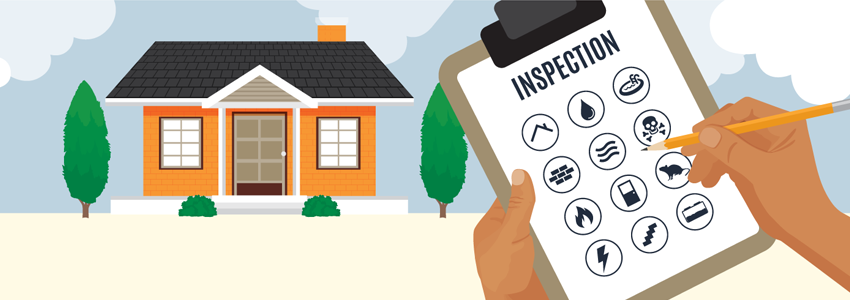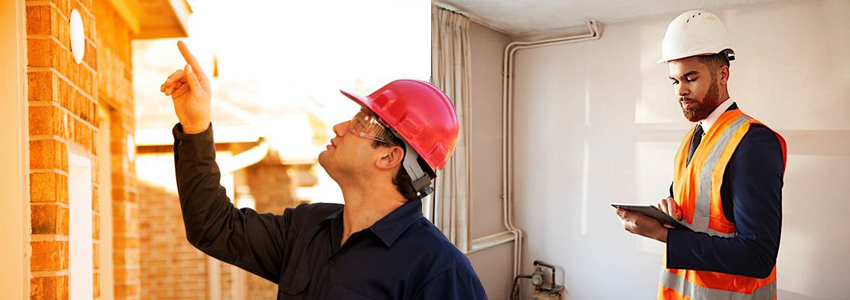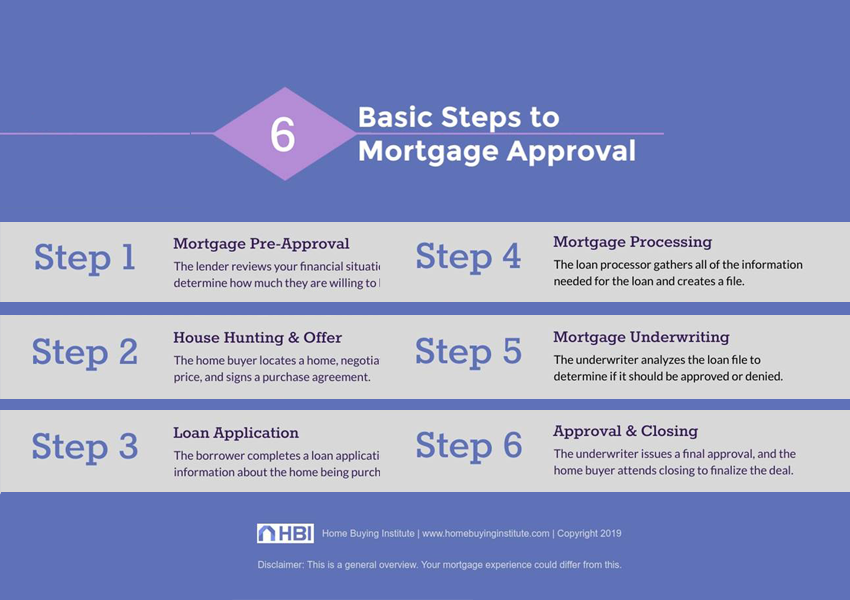HOME INSPECTION
Home inspections are a critical part of the home buying and selling process.
Failure to obtain a home inspection could potentially cost you a great deal of money and hassles in the long run.
Uncover valuable tips on the importance of a home inspection and helpful links to a variety of professional home inspection organizations,
plus useful information available to you from the National Association. You’ve made an offer on a home,
your offer was accepted, and now you’re in escrow waiting for inspection day.
How will you succeed?
A licensed or ASHI certified home inspector goes through an exhaustive checklist: By crossing item off our thorough home inspection checklist. With a home inspection checklist by your side, you’ll move into the home of your dreams in no time.
Buying your first home is accompanied by a myriad of emotions. You’re excited because you finally have a place to call your own. You’re nervous to look at your savings account after paying a down payment. You’re exhausted after spending months working with an agent to find the perfect home.
Don’t worry, this rollercoaster of feelings is completely natural and will come to an end soon. The hardest steps are out of the way when all that’s left is an inspection and final walkthrough. And because the inspection process can be demanding, we’ve created an ultimate home inspection checklist to ease your fears and help transition you into the home of your dreams. Who needs first time homebuyer 101 when you have this available?
Home Inspection Checklist
If you are working with a professional inspector, he or she should know what to look for. However, it’s also important for investors to be able to identify crucial inspection components. The more one knows about the process, the easier they will be able to evaluate a property of their own. Having said that, there are six categories essential to a house inspection checklist:
1. Foundation:
Evaluate the property’s foundation and whether or not it will pose any problems down the road
2. Structure: Take a close look at the structural integrity of the home, as it will determine several other factors moving forward
3. Exterior: Examine the exterior. Don’t leave any stone unturned, whether it’s on the roof or in the yard
4. Interior: Walk through the house and be critical of everything you see
5. Plumbing/HVAC: Don’t forget to take a look at the property’s plumbing and HVAC unit, as both are big-ticket items worthy of a closer inspection
6. Electrical: While harder to examine than just about everything else, it pays to have an idea of how the home’s electrical system is operating
With that out of the way, here’s an extensive list of questions to ask yourself when referencing a home inspection checklist.

-> Foundation, Structure, and Exterior
· Is the visible foundation in good condition?
· Are there cracks or shifts in foundation at the base of the walls and ceiling?
· Is there proper drainage carrying water away from the house?
· Are there any obvious soggy areas in the landscaping?
· Is there any evidence of standing water?
· Are there leaks in the septic tank?
· Is there any evidence of termite damage or rotted wood?
· Are windows and door frames square or bowed?
· Are there large cracks in the stucco?
· Is the exterior paint stained, peeling, or faded?
· Does the home look as though it will need repairs in the near future?
· Is the roof decaying?
· Does the roof have patching?
· Is the chimney in good condition?
· Do the gutters properly drain?
· Is the siding cracked, loose, rotted, or decayed?
->Interior
· Are there any strange odors coming from inside the home?
· Are any appliances included in the purchase of the home? (I.e. refrigerator, dishwasher, washing machine, etc.)
· Is there evidence of proper insulation?
· Have the electrical outlets been tested?
· Are there stains or other damages on the floors?
· Will any flooring need to be replaced?
· Are there an adequate number of electrical outlets in every room?
· Do windows and doors operate properly?
· Are the joints around window frames caulked?
· Is there leakage in or around sinks?
· Is the water pressure adequate?
· Is there sufficient ventilation throughout the home?
· Do toilets operate properly?
· Can you easily spot the required smoke and carbon monoxide detectors?
· Are there stains on the underside of the roofing in the attic?
· Does the attic have sufficient insulation and ventilation?
· Are there any open electrical splices in the attic?
->Plumbing & HVAC
· Do pipes leak?
· Are pipes rusted or damaged?
· Is the water pump in working condition?
· Does the hot water temperature exceed 125 degrees Fahrenheit?
· Do pipes restrict water flow?
· Does every room in the home receive sufficient air flow?
· Does the cooling unit appear rusty?
· Have the air filters in the cooling unit been replaced recently?
· Is there a history of asbestos on heating pipes, water pipes, are air ducts?
· Can you smell gas?
->Electrical
· Are there any exposed splices?
· Are cables secured and protected?
· Can you locate the service panel?
· Are fuses or breakers overheating?
Home Inspection Tips for First-Time Buyers
A first time home buyer inspection might seem daunting at first, but it really doesn’t need to be complicated if you know exactly how to prepare.
Here are some tips to follow as you prepare for your first inspection, which will correlate with your home inspection checklist:
1. Work with referrals to find the right home inspector. Ask your agent (me).
2. Request a disclosure statement from the seller
3. Mind your due diligence and do your own research
4. Come up with the right questions to ask
5. Identify your deal breakers in advance
6. Be there for your home inspection appointment
Find the Right Inspector
If you are working with a real estate agent, he or she should be able to help you find a licensed home inspector. If not, there are plenty of online resources that will reveal a list of professionals to work with in your area.
The best way to find a home inspector that will meet your needs is to ask around. Talk with friends and family to find recommendations. Check online reviews to see whether or not past clients had a positive experience. The last thing you want is to work with an inspector who is more concerned about their paycheck than your well-being. Just be sure to work with a person who has proven, thorough results.
Ask your inspector these questions to discover whether they will be the right fit:
· “Are you a member of a professional inspection organization?” The most reputable inspectors should be a member of either “The National Association of Home Inspectors”, “The American Society Of Home Inspectors”, or “The International Association Of Certified Home Inspectors.”
· “What is your background and experience?” You want to work with an inspector who has the basics of local building codes and requirements down to a tee. If you are buying an older home, or a “fixer upper”, it is best to find an inspector who has experience working with similar properties.
· “How long will the inspection take?” If your inspector says your inspections will last less than one hour, you are working with the wrong professional. Home inspections take two to three hours on average and can take even longer if you’re moving into a larger home.
· “Can I attend the inspection?” You should attend your final home inspection no matter what. Two sets of eyes are always better than one and you can’t guarantee your inspector will catch everything. If your inspector refuses to let you attend the inspection, this is an automatic red flag.
Get a Seller’s Disclosure Statement
A disclosure statement simply refers to an informative document given by the seller with any property details they need to make the buyer aware of. In some states there are laws and regulations dictating the type of information required in a disclosure statement, though generally speaking they include a series of yes or no questions from the seller. Homebuyers should aim to get a disclosure statement before an official home inspection is conducted. The reason for this is because a disclosure statement can draw attention to any areas that have been renovated or repaired; the inspector can then double check these areas to make sure they were completed properly.
Mind Your Due Diligence
This should go without saying, but It is also important to do your own research on potential inspectors ahead of time. (Even if you think you don’t have time, such as when buying a home in summer.) While a plumber or an electrician has in-depth knowledge about certain aspects of a home, your inspector should possess a broad knowledge of a home’s systems and structures. Your inspector should be objective, independent, and not affiliated with the seller in any way. No first-time homebuyer wants an inspector who doesn’t have their best interest in mind.
If possible, walk through your new home on your own before inspection day. This way, you can put together a list of questions for your inspector and the seller. The worst thing you can do is show up to inspection day ill prepared; you will be blindsided and thus be incapable of assessing every damage.
Ask Questions
Once you’ve found the right contractor, make sure to come up with a list of questions to ask. As a rule of thumb, always ask how much the inspection will cost, and ask for a rundown for what it covers. There may be some specialized types of inspections that will come as an additional cost. Also make sure that your contractor can be available on a date and time that will work with the deadlines on your purchase agreement. Keep in mind that the actual inspection is just part of the process, and it can take several days to receive the report with the results. Also verify that the inspector is properly certified.
Identify Your “Deal Breakers”
As a homebuyer, you should always keep a budget in mind for home repairs. Throughout the inspection process, you’ll start getting a better idea of how much repairs will cost. In advance, set limitations on how much you are willing to spend on repairs, no matter how much you love the house. Major repairs, such as electrical, plumbing or structural work can break your bank if you don’t have a large enough budget. If the inspector returns with unsavory results, be prepared to make a difficult decision of whether or not you want to jump into your purchase.
Be There!
You might think that it would be best to stay out of your inspector’s way and let them do their job, but it’s quite to the contrary. Plan on being at the property for the inspection appointment,
and don’t be afraid to ask plenty of questions. However, it may be best to reserve your questions for the very end, or during breaks, so as not to distract them from their work.

Summary
As you sign the purchase agreement to the home you’ve found after months of searching, a home inspection checklist might be the last thing on your mind. However,
the home inspection is an important process of making sure that your new property doesn’t have any unexpected repairs that could break your bank.
Equip yourself with a thorough checklist, and getting through your first time home buyer inspection will feel like a breeze.
Is there anything you would add to your own home inspection checklist? Feel free to share below:
Home Inspection's Complete? Here's What You Must Ask Afterward

What are some questions to ask a home inspector after he's finished the inspection? Because, let's face it,
just staring at that hefty report highlighting every flaw in your future dream home can send many buyers into a full-blown panic!
Know the right questions to ask a home inspector afterward, though, and this can help put that report into perspective. Here are the big ones to hit.
'I don't understand [such and such], what does it mean?'
Just so you know what to expect, here's how it will go down: A day or two after the inspection, you should receive the inspector's report. It will be a detailed list of every flaw in the house, often along with pictures of some of the problem areas and more elaboration.
Hopefully you also attended the actual inspection and could ask questions then; if so, the report should contain no surprises. It should contain what you talked about at the inspection, with pictures and perhaps a bit more detail. If there's anything major you don't remember from the inspection in the report, don't be afraid to ask about it.
'Is this a major or a minor problem?'
Keep in mind, most problems in the house will likely be minor and not outright deal breakers. Still, you'll want your home inspector to help you separate the wheat from the chaff and point out any doozies. So ask him if there are any problems serious enough to keep you from moving forward with the house.
Keep in mind that ultimately it's up to you and your agent to determine how to address any issues. Call me if you have any questions.
"The inspector can't tell you, 'Make sure the seller pays for this,' so be sure you understand what needs to be done,"
'Should I call in another expert for a follow-up inspection?'
Expect to have to call in other experts at this point to look over major issues and assign a dollar figure to fixing them. If your inspector flags your electrical box as looking iffy, for example, you may need to have an electrician come take a look and tell you what exactly is wrong and what the cost would be to fix it. The same goes for any apparent problems with the heating or air conditioning, roof, or foundation. An HVAC repair person, roofer, or engineer will need to examine your house and provide a bid to repair the problem.
Why is this so important? This bid is what your real estate agent will take to the seller if you decide to ask for a concession instead of having the seller do the fix for you. Your inspector can't give you these figures, but he can probably give you a sense of whether it's necessary to call somebody in.
'Is there anything I'll need to do once I move in?'
Wait, you're still not done! It's easy to forget the inspector's report in the whirlwind of closing and moving, but there are almost always suggestions for
things that need doing in the first two to three months of occupancy.
Homeowners make panicked call months after they've moved in. Although the home inspector notes certain issues in his report, the buyers neglected the report entirely—and paid for it later.
"I had a couple call and tell me they had seepage in the basement," "I pulled up their home inspection report and asked if they'd reconnected the downspout extension like I home inspector recommended. Nope. Well, there's your problem!"
Everything you didn't ask the seller to fix? That's your to-do list. Isn't owning a home fun?




